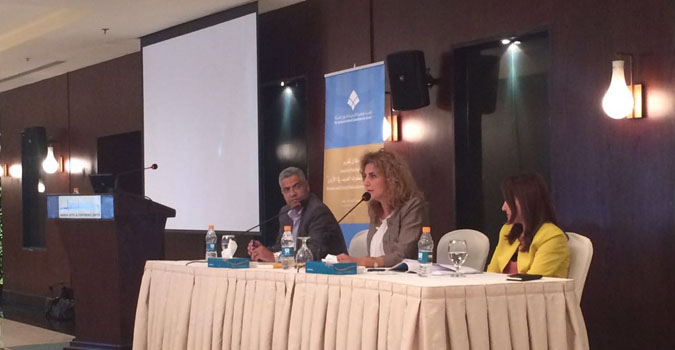The Jordanian National Commission for Women and UN Women launch the report ‘Women and Violent Radicalization in Jordan’
Date:

Opening remarks by Dr. Salma Nims, Secretary General of JNCW, during the launch of the report ‘Women and Violent Radicalization in Jordan’; photo credits: UN Women Jordan
On July 25th 2016, members of Jordanian and international civil society, government officials, and experts gathered for the launch of the report Women and Violent Radicalization in Jordan. The report was jointly commissioned by UN Women and the Jordanian Commission for Women (JNCW) to explore the perceptions of men and women of radicalization in their communities, the risks that women and girls may face from radicalization, the roles that women occupy in both the radicalization and de-radicalization processes, and whether current efforts at de-radicalization are gender-sensitive.
There is growing concern that Jordan is experiencing increased radicalization and violent extremism, as evidenced by recent attacks in the northern city of Irbid and at the border with Syria. According to the study presented, 85% percent of the respondents interviewed feel that radicalization is taking place in Jordan, including among youth in university campuses. The report sheds light on perceptions of extremism as well as its risks and causes, and will help to inform the development of Jordan’s National Action Plan on UN Security Council Resolution n. 1325 (2000) on Women, Peace and Security.
The launch featured remarks by Dr. Salma Nims, Secretary General of JNCW, Dr. Mohammad Aljiribia - expert on gender and extremism, and Ms. Mai Eliemat, Director of Research & Fundraising at Al Hayat Center for Civil Society Development - who presented the findings of the report. Dr. Nims stressed the need to present positive role models to young people in society, saying, “We need to have new heroes for our children to look up to instead of the extremist voices ‘heroizing’ themselves and infiltrating our culture through social media.”
This initiative has been generously funded by the Government of Finland, while the research that led to the development and formulation of the report has been kindly supported by the Government of Japan.
The full report can be accessed here.